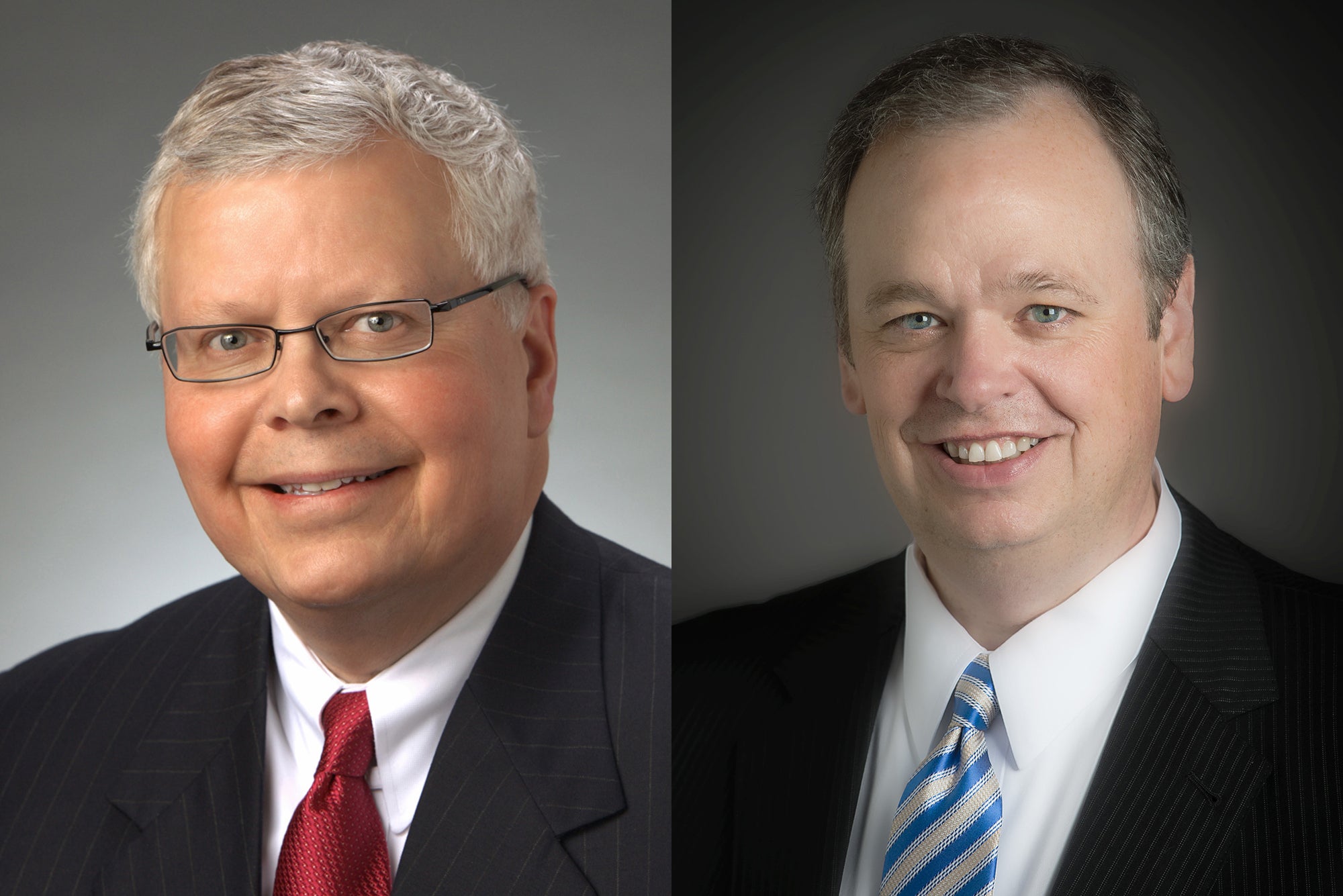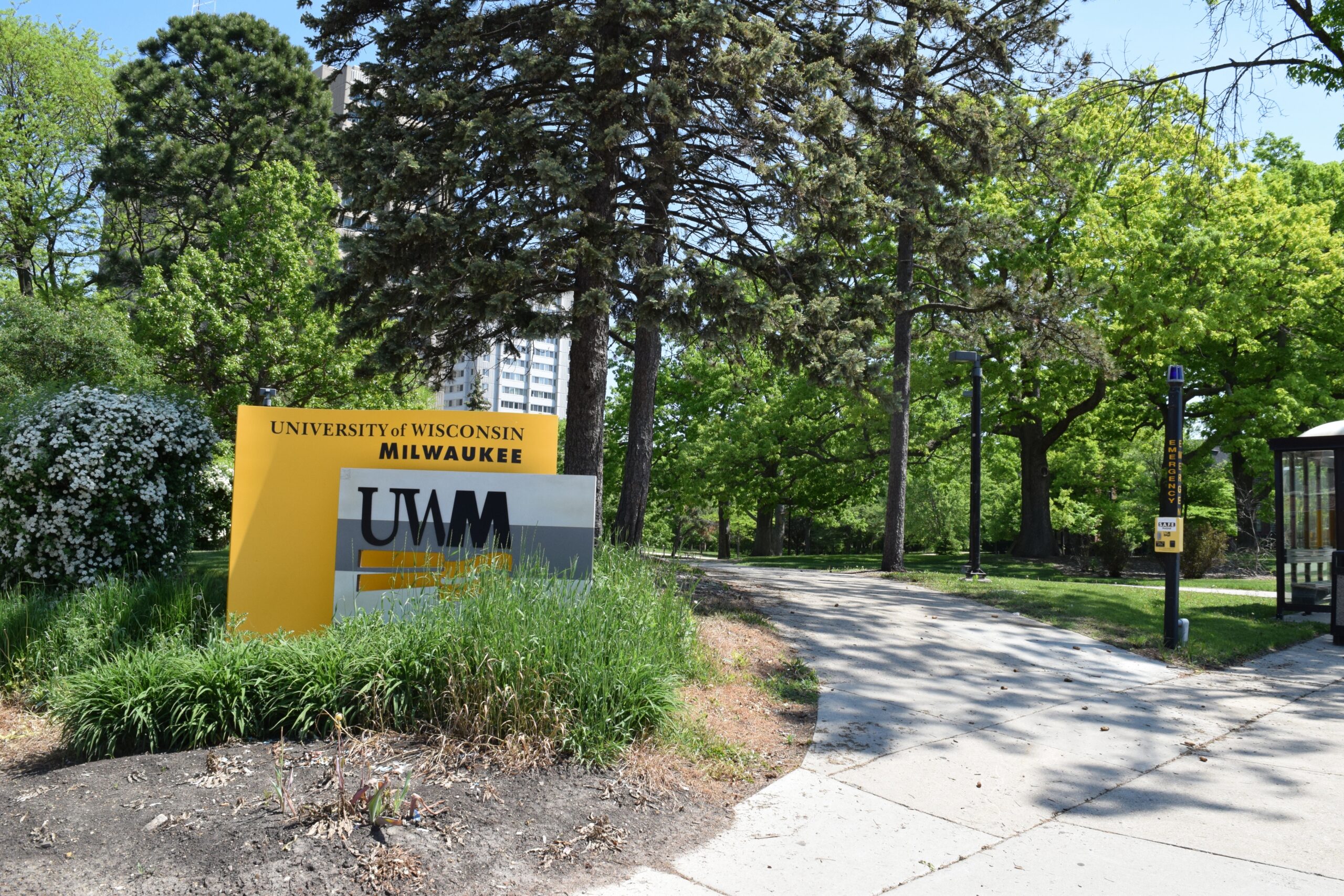Two men from Wisconsin have been named finalists in the search for the next University of Wisconsin System president. A special UW Board of Regents committee has forwarded UW-Eau Claire Chancellor Jim Schmidt and Milwaukee law firm CEO Jay Rothman from a field 44 applicants.
Rothman has been chair and CEO of the Milwaukee-based law firm Foley & Lardner since 2011 and has been a partner since 1994. He earned a bachelor’s degree from Marquette University and a law degree from Harvard Law School. A biography of Rothman, provided by UW System communications staff, said he is responsible for the development and execution of the law firm’s strategic plan and oversight of administrative functions — including recruitment, retention and development.
Rothman also serves as a director of Quad/Graphics and Mayville Engineering Co., and is director of Junior Achievement of Wisconsin and the Metropolitan Milwaukee Association of Commerce.
Stay informed on the latest news
Sign up for WPR’s email newsletter.
During an interview Friday, in which UW System communications staff stipulated reporters ask the same two questions to each candidate, Rothman said he was honored to be considered as a finalist and said his decision to apply for the job was based, in part, on him nearing the end of his term as chair at Foley & Lardner. He said that creates “an opportune time for me to think of my next chapter.”
Rothman described the UW System as a crown jewel of Wisconsin and said his experience leading a large, international law firm for 11 years matches well with a passion to help the university and Wisconsin flourish.
“We depend on the individual entrepreneurial skills and leadership skills of our partners, of which there are nearly 500,” Rothman said of the firm. “They are intelligent and they are independent. And I suspect the same is very much true of leading the system when you think about shared governance.”
Rothman said the UW System needs to address pay gaps between system faculty and those at peer institutions, though he said he doesn’t have immediate answers of how to do that. Rothman said campuses also need to work with public K-12 schools to create additional pathways for students to receive a college education.
Rothman was asked when, if ever, the UW System would need to look at closing campuses in light of declining enrollment, especially at two-year branch institutions. He said difficult choices may need to happen, but not until all other options are exhausted.
“So, I do think we have to be careful about how we approach closures,” said Rothman. “But I would go first to saying, ‘What can we do to build up the vibrancy and the sustainability of those campuses before we look at saying we ought to just close.”
Schmidt has served as chancellor at UW-Eau Claire since 2013. Prior to that he was vice president for university advancement at Winona State University in Winona, Minnesota, and vice president for student affairs at Riverland Community College in Austin, Minnesota. Schmidt has a bachelor’s degree in political science from Winona State University, a masters of business administration from the University of St. Thomas in St. Paul, and a doctorate in educational policy and administration from the University of Minnesota, Twin Cities.
The UW System biography for Schmidt cites a research collaboration between the university and Mayo Clinic and a super-computing center at the UW-Eau Claire campus via a partnership with Hewlett Packard Enterprise.
Schmidt has also overseen a major public-private partnership involving the UW-Eau Claire Foundation, private developers and local governments to build a new performing arts center in downtown Eau Claire, which opened in 2018.
Schmidt and the foundation are working to break ground this summer on a $100 million sporting and events complex that will include a Mayo Clinic sports medicine center.
The system biography also stated Schmidt helped raise nearly $200 million for UW-Eau Claire.
In a subsequent Friday interview, Schmidt touted his experience working at colleges in multiple roles including government relations.
“I’ve developed a reputation for innovation, community engagement, strategic partnerships and successful fundraising, and always as a passionate advocate for students who deserve at least as good an opportunity as each of us have had,” said Schmidt.
He said the biggest challenge facing Wisconsin is the need to attract new talent ot drive the state’s economy.
“As a UW System, we need to meet students where they are and remove barriers to success so that everyone achieves their potential,” Schmidt said. “Wisconsin’s success is tied to the success of its people.”
Schmidt said the UW System must “squeeze every ounce of value of every dollar” offered by the state. He said he’s become “very practiced in cutting budgets” since becoming chancellor at UW-Eau Claire.
“What I need to do if I’m a system president is make sure we’re being responsive to the people of the state of Wisconsin to make sure, in our communities, we’re working with our cities, we’re working with businesses to meet their needs,” said Schmidt. “And I think by doing the right things with them, I’m going to be counting on them to do the right things for us and advocating with the governor and the Legislature about making new investments in the state of Wisconsin.”
Schmidt suggested pooling system resources to find out how to provide students with either online or in-person classes with business support that are convenient for students.
Schmidt was asked about former UW System President Ray Cross’ “blueprint” that suggested creating specialized university missions and having UW System administrators identify duplicate degree programs across the state and potentially eliminate them.
“I think the blueprint had some interesting ideas in it, but its biggest problem is it focused on a top-down model,” said Schmidt. “I think I want to turn that around.”
In December, Wisconsin Public Radio submitted an open records request asking how many candidates applied for the UW System’s top job and what demographic information candidates self-reported. In an email sent Dec. 16, the system said there were 44 individuals who applied as of Dec. 10. Of those who self-reported their race, 23 were white, 11 were people of color and 10 applicants didn’t report. Seven of the applicants were women and three said they were veterans.
The latest search to find the next permanent UW System president began in July 2021 when a 19-member search committee was named by UW Board of Regents President Emund Manydeeds. The committee included regents, administrators, a student regent, along with faculty and staff members from state campuses.
That was more than twice the size of a prior search committee that worked unsuccessfully in late 2019 and early 2020 to find a replacement for Cross, who announced his retirement in 2019. In November 2019, former Board of Regents President Andrew Petersen announced an eight-person committee that included chancellors, regents, a provost and a student regent — but did not include faculty staff or other students.
The exclusion of faculty and staff members drew criticism from system employees. At the time, Petersen said the smaller committee would be able to pick Cross’ successor faster than past searches that included dozens of members.
On June 2, 2020, Petersen’s committee named former University of Alaska System President Jim Johnsen as the sole finalist for the position. That search collapsed when Johnsen withdrew 10 days later and said regents “have important process issues to work out.”
After the failed search, the UW System announced former Republican Gov. Tommy Thompson would step in as interim president until a successor was found. Last week, Thompson announced he would resign from the position effective March 18.
A press release identifying Rothman and Schmidt as finalists said the Special Regent Committee will forward their recommendations to the full Board of Regents. A final decision is expected by the end of January, according to the release.
Editor’s note: Wisconsin Public Radio is a service of the University of Wisconsin-Madison and the Wisconsin Educational Communications Board.
Wisconsin Public Radio, © Copyright 2025, Board of Regents of the University of Wisconsin System and Wisconsin Educational Communications Board.




